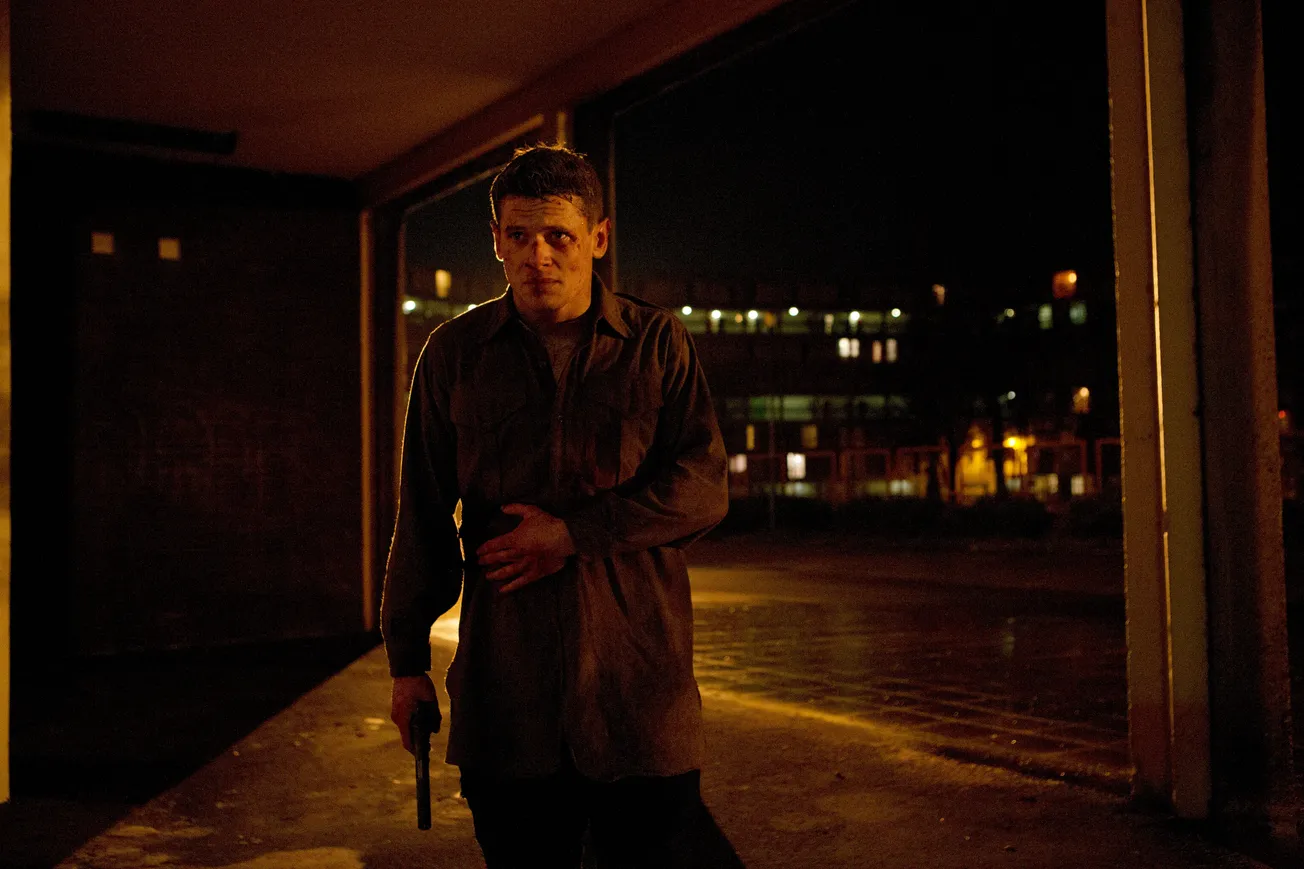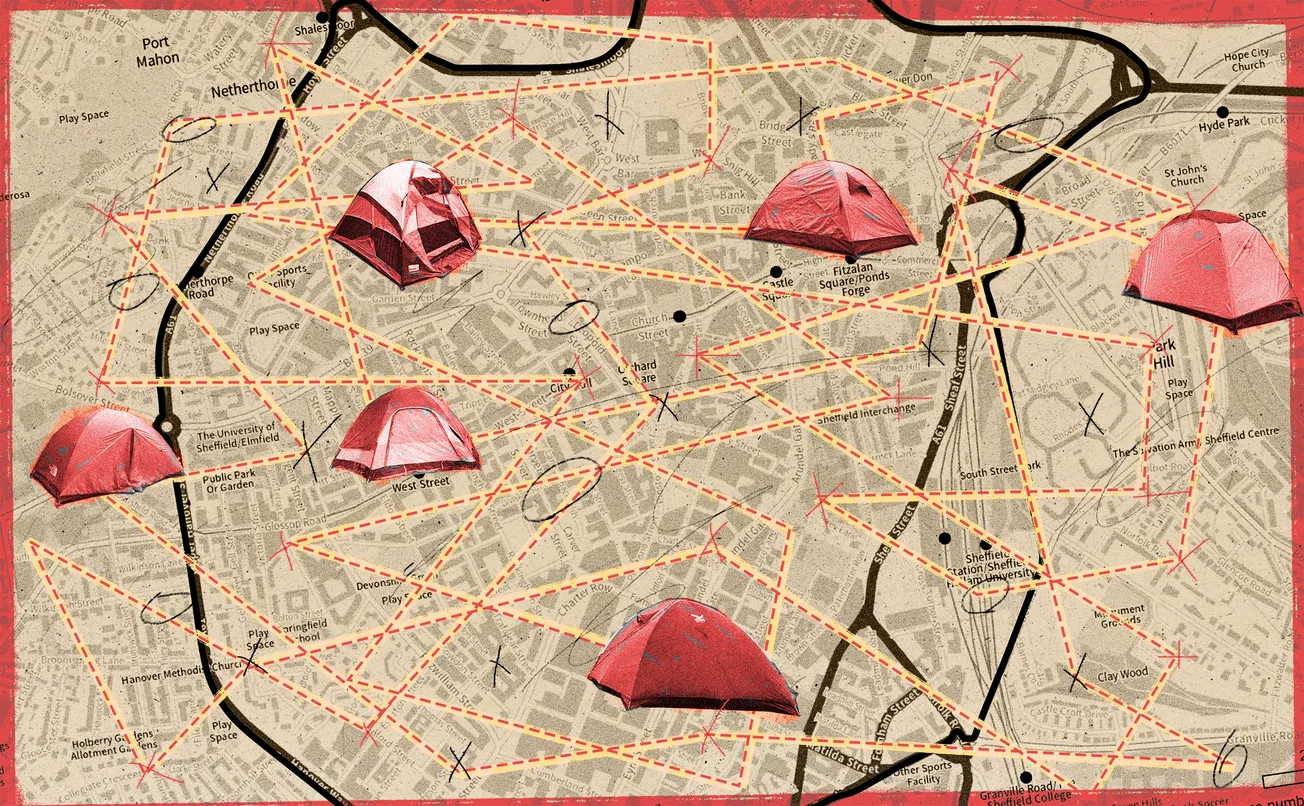Good afternoon readers — and welcome to this week’s second members-only newsletter. We normally publish this one on Thursday, but today’s story took a bit more time than we expected — and we needed to give the company at the heart of it a proper chance to respond to what we are reporting.
The piece is about Pretty Little Thing, a online fashion retailer that is enormously popular among young women and which arrived in Sheffield in 2018. The firm has brought jobs and investment to the city and has been warmly embraced by political leaders in the region. But big questions hover over its “fast fashion” business model, in which customers get fashionable clothes at very cheap prices. Some wonder what the true cost of those low prices is, and whether it involves exploitation in the supply chain. We spoke to workers at the company’s vast Sheffield warehouse to try to find out.
Mini-briefing
- Following on from our briefing on Monday about the planning system, local democracy reporter Molly Williams reports on another planning inquiry that has gone against campaigners and the council. The Hollin Busk development in Deepcar was given the go ahead by an inspector on the grounds that the council could not demonstrate a five-year supply of housing. A follow-up story quotes a council planning officer as saying the council is likely to remain in a weakened position to resist applications on green field sites for “a long time”.
- South Yorkshire Live reports the terribly sad news that a five-year-old boy who died after falling out of a Sheffield hotel window on Wednesday was an Afghan refugee who had just arrived in the UK. The boy is believed to have fallen out of a back window of the Sheffield Metropolitan Hotel on Blonk Street at around 2.30pm yesterday afternoon. Reporter Kristian Johnson spoke to another refugee staying at the same hotel. “They came here to save their lives and now this has happened,” the man told him. “It is so sad.”
- Former Sheffield MP Jared O’Mara and one of his former aides have been charged with submitting fraudulent expenses claims to the Independent Parliamentary Standards Authority. Mr O’Mara — who served as MP for the Hallam constituency between 2017 and 2019 — is scheduled to appear before Sheffield Magistrates’ Court alongside his former chief of staff Gareth Arnold on September 24.
- Sheffield FC — the oldest football club in the world — will be televised for the first time in its 163 year history in the first preliminary round of the FA Cup this weekend. “The World’s First” will play Sherwood Colliery at 12.30pm on Saturday, August 21 at the Coach and Horses stadium in Dronfield, the ground that has been home to the club for the last 20 years (they hope to move to a new ground in Meadowhead next year). The match will be live on the BBC website, on iPlayer and on the red button.
- For the more adventurous among you, Sheffield’s brilliant Dorothy Pax bar is hosting its first ever music festival this weekend in the North East Derbyshire village of Marsh Lane. The festival will run from Saturday, August 21 to Sunday, August 22 and features special guests Henge, who put on what can only be described as an astonishing show at the Tramlines fringe event at Victoria Quays just weeks ago. Both weekend and day tickets are still available priced at £45 and £25 respectively. Book here.

“This place makes me smile,” wrote Umar Kamani on Instagram under a picture of himself in Pretty Little Thing’s Sheffield warehouse in November 2019. The photo shows the company’s 32-year-old co-founder and CEO — who hails from Manchester — dressed casually in a baseball cap and North Face gilet. Perched high on a gantry, the cavernous space of the warehouse extends behind him, seemingly endless rows of shelves stretching off to a vanishing point in the distance.
To date Umar’s post has received 33,860 likes and 1,092 comments. “I look at this and you inspire me to be you one day,” one fan writes; “Now that’s goals,” says another. Others are less complimentary. “Anyone who thinks this is something to look up to needs to take a hard look at themselves,” writes one; “This much polyester...on its way to the earth and sea near you,” says another.

If you’ve never heard of Pretty Little Thing, there’s a good chance you’re not the target demographic. The cheap, mass-produced clothes are aimed at girls and young women between the ages of 16 and 24. The company’s use of celebrity influencers like model Demi Rose has seen them grow from nothing in 2012 to become one of the world’s biggest fashion retailers in less than a decade. Last year they generated more than £500m in revenue from 6.3 million customers.
The firm was set up by Umar and Adam Kamani, the sons of Mahmud Kamani, who started the even bigger fast-fashion e-commerce giant Boohoo in Manchester in 2006. Mahmud’s father Abdullah emigrated to Manchester from Kenya in the 1960s and had a market stall selling clothes — which is how the family got into the rag trade. Buyers for Boohoo and Pretty Little Thing are constantly on the lookout for new popular styles, whether that’s from designers at fashion shows or looks that are going viral on social media. Then they move with extreme speed to design and source their own versions of those clothes and get them on their website within days. Boohoo’s chief executive John Lyttle recently boasted he could get a new design on the website in as little as 48 hours.

Last year, the Pretty Little Thing website was reported to have around 20,000 separate products on sale. Most of these are clothes, shoes and accessories but the firm also sells beauty products and has recently opened up a homeware section as well. Currently popular items include a black cowl neck ruched side bodycon dress for £12 (pictured), a cream satin backless strappy crop top for £10 and light wash disco fit skinny jeans for £15. The site regularly has sales where prices for many items can go below £5.
Perhaps the company’s most famous promoter is Molly-Mae Hague, a social media “influencer” who made her name on the hit ITV show Love Island, and has signed a series of big-money deals with Pretty Little Thing, or PLT as its customers tend to call it. The 22-year-old Hague has been paid more than £2 million to promote PLT clothes in the past few years, such is her influence among the company’s target customers. She advertises the brand’s wares to her 5.8 million followers on Instagram, and the 1.56 million fans on YouTube who watch videos of her unboxing deliveries from PLT (if you’re not familiar with the “unboxing” format, we recommend giving it a try).

Critics say “fast fashion” retailers like Pretty Little Thing and its majority shareholder Boohoo are selling clothes so cheap they are meant to be worn once and then thrown away. Last November, the firm was criticised for selling dresses for as little as 8 pence. Pretty Little Thing and its competitors in this world of stack-em-high-sell-em-cheap online retail are enormously popular among younger customers, and frowned upon by some older consumers who are paying increasing attention to the sustainability of what they wear.
But as that debate goes on, these retailers are posting staggering sales numbers. When Boohoo bought 66% of Pretty Little Thing for £3.3m in 2016, it was recording sales of £17m. Just three years later PLT hit £374m in sales. That rapid growth prompted the firm’s search for new premises, which led them to the Sheffield suburb of Tinsley, home to the largest available warehouse in the UK.
The sheer scale of the firm’s operation in Sheffield is difficult to compute. You don’t really get a sense of it on the way out of the city, as Shepcote Lane winds its way from Greenland Road to the M1 motorway. It seems a strange thing to say of something so big but from some angles it seems almost hidden from view. The upper portion of the building has been painted light blue, presumably in an attempt to make it blend in with the sky.

On the way back into Sheffield, however, its size is awe inspiring. The 615,000 square foot building is just over 14 acres (5.7 hectares) in size, equivalent to about 10 football fields. The warehouse is operated by Clipper Logistics, a Leeds-based company which Pretty Little Thing partnered with when they took on the site in 2018. At the busiest times of the year 2,100 people can work there, many of them on 12-hour shifts. The whole operation carries on 24 hours a day, 364 days a year.
In logistics terms it’s perfect. Because of Sheffield’s central location, 90 per cent of the country’s population can be served within a four-and-a-half-hour drive. This means lorry drivers can reach the vast majority of places before they are required by law to stop for a break. Couriers thunder the short distance down the A631 at all times of the day and night to briefly stop at the building before re-joining the motorway network within minutes.
When Pretty Little Thing arrived in Sheffield, they were welcomed with open arms by political leaders. A post on the Sheffield City Region website from April 2018 quoted former Sheffield City Council chief executive John Mothersole as saying: “This is a brilliant addition to the city’s jobs market. Our logistics offer is strong and that is why Clipper Logistics have decided to base its Boohoo and Pretty Little Thing operation here.”
No city could afford to turn its nose up at the prospect of more than a thousand jobs. But over the past year, questions over Pretty Little Thing’s employment practices have continued to dog the firm. They were criticised last year after continuing to operate throughout the coronavirus crisis. In July, Clipper Logistics reported that 28 staff members at the warehouse had contracted Covid-19.

A report in The Guardian from last April quoted a member of staff as saying that the firm’s 70% sale during the first weeks of the lockdown had been “totally irresponsible” and had led to a massive increase in workload — from 120,000 orders in a normal week to 400,000 in early April 2020, the same number that would normally be processed at Christmas or New Year. One staff member said:
I don’t understand why we are practically being forced to work when clothing retail is not exactly an essential service and it seems the company care more about profit than staff. They should take [their] example from Next and River Island that have already closed their warehouses.
Around the same time a Sunday Times investigation found staff at a factory in Leicester making clothes for Pretty Little Thing and Boohoo were being paid as little as £3.50 an hour — more than £5 an hour less than the over-25 minimum wage rate of £8.72 an hour. The allegations that the company was employing people in “sweatshop” conditions wiped more than £1bn of Boohoo’s share price. The firm later admitted that conditions in the factory were “totally unacceptable and fall woefully short of any standards acceptable in any workplace”.
But despite these problems, Pretty Little Thing isn’t finding it hard to source workers in Sheffield. If you walk or drive up and down Shepcote Lane at any time of the day or night, you will see a steady stream of yellow vested workers making their way to and from the giant warehouse. Many of those The Tribune spoke to over the last week were both young and not originally from the UK. Lots were from Eastern Europe but there were also workers from the Caribbean and even one from the tiny south-east Asian nation of East Timor.

Conversations with more than 10 former and current employees reveal a workplace that few of the staff we spoke to enjoy working in. They describe it as physically demanding, highly pressured and monotonous. This means the turnover rate is high, with one worker saying dozens of new staff have to be inducted every day simply to replace the staff who don’t return.
One former employee, who finished there just weeks ago, told The Tribune she left due to a “lack of respect” from Mach Recruitment, the agency which employs many of the staff who work at the warehouse. The former employee, who didn’t want to be named, said she left work one day after suffering from period pains, but was told by an agency manager that she wasn’t allowed to. “They said they didn’t believe me and that the manager at the warehouse didn’t have the power to let me go home,” she said. “I never went back in.”
The former employee worked as a picker, a small army of people paid to dash around the warehouse fetching orders which are then packed to be shipped out. She says she was one of the slower pickers, but would still regularly complete around 14,000 steps in one eight-hour shift — a distance of around seven miles. But some of the quickest pickers can rack up an astonishing 250 picks an hour, covering up to 20 miles and picking thousands of items in one 12-hour shift.
Working at this kind of speed means pickers often rush around the warehouse, leading to accidents. “People don’t follow the rules on running and pickers often get hit,” she said. This was backed up by several current staff members, whose accounts paint a picture of a warehouse where staff are allowed to break rules to keep pace with the demanding targets.

Another worker who was employed through Mach said he too was told he wasn’t allowed to cut his shift short by the agency despite being ill. “I had Covid symptoms and they told me to take paracetamol,” said the man, who also didn’t want to be named for fear of losing his job. “They said if you go home don’t bother coming back. I tested positive for Covid the next day.”
Most of the staff interviewed by The Tribune did say the hourly rate paid by the firm of £11.62 an hour was good or better than that on offer at other comparable jobs. There are plenty of warehouses and distribution centres where people do similar work for less well known companies and get paid closer to the minimum wage.
However, another worker who is currently employed as a packer said the monotony and target obsession — she is expected to get through at least 170 items an hour — made working there torturous. “If you don’t meet that target in an hour they will be, like, ‘what happened there?’”, she said. “The money isn’t good enough to have to put up with that.”

In a statement released to The Tribune, a Boohoo group spokesperson said Clipper were currently trying to reduce their reliance on agency staff. They added that by directly recruiting staff on to permanent contracts with the firm, they would be able to provide more secure employment opportunities. They told us:
We have a good relationship with Clipper and we are happy with their operation of the warehouse. We remain fully committed to Sheffield and will be investing £125m at the site over the next three years. This investment will create new jobs including highly skilled roles to maintain the specialist equipment that’s being installed.
At the same time as he posted the photo of him overlooking his huge warehouse, Umar Kamani also shared a video to Instagram filmed inside the building. The film — shot by a drone flying through the warehouse’s cavernous spaces — shows an orderly workplace, complete with bright pink machinery to match the company’s branding. It’s an extraordinary insight into the mechanisation of modern retail, and the tech-powered companies who are clothing young people across the country.
Since that video was posted, the pandemic has dramatically accelerated the shift to online commerce. And while Kamani might say the warehouse “makes me smile”, the human cost of this brave new world of online shopping is yet to be tallied or fully understood. Across the country, hundreds more warehouses like this are popping up to fulfil the orders of British consumers who have moved their shopping to the internet. And inside them, workers like the ones we have spoken to are toiling away, out of public view.
We are planning more reporting on how low-wage work is changing in the new economy of online retail, food delivery and ride-hailing apps in Sheffield. If you have information to contribute, please email us at editor@sheffieldtribune.co.uk.

0 Comments
How to comment:
If you are already a member,
click here to sign in
and leave a comment.
If you aren’t a member,
sign up here
to be able to leave a comment.
To add your photo, click here to create a profile on Gravatar.







